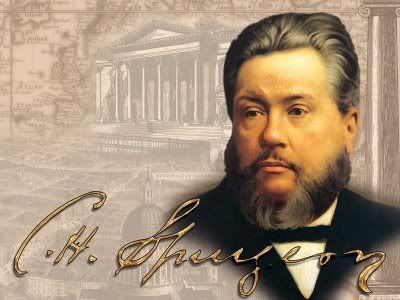turnorburn
Member

Tuesday, January 27, 2009
This Morning's Meditation
C. H. Spurgeon
"And of his fulness have all we received."â€â€John 1:16.
THESE words tell us that there is a fulness in Christ. There is a fulness of essential Deity, for "in Him dwelleth all the fulness of the Godhead." There is a fulness of perfect manhood, for in Him, bodily, that Godhead was revealed. There is a fulness of atoning efficacy in His blood, for "the blood of Jesus Christ, His Son, cleanseth us from all sin." There is a fulness of justifying righteousness in His life, for "there is therefore now no condemnation to them that are in Christ Jesus." There is a fulness of divine prevalence in His plea, for "He is able to save to the uttermost them that come unto God by Him; seeing He ever liveth to make intercession for them." There is a fulness of victory in His death, for through death He destroyed him that had the power of death, that is the devil. There is a fulness of efficacy in His resurrection from the dead, for by it "we are begotten again unto a lively hope." There is a fuIness of triumph in His ascension, for "when He ascended up on high, He led captivity captive, and received gifts for men." There is a fulness of blessings of every sort and shape; a fulness of grace to pardon, of grace to regenerate, of grace to sanctify, of grace to preserve, and of grace to perfect. There is a fulness at all times; a fulness of comfort in affliction; a fulness of guidance in prosperity. A fulness of every divine attribute, of wisdom, of power, of love; a fulness which it were impossible to survey, much less to explore. "It pleased the Father that in Him should all fulness dwell." Oh, what a fulness must this be of which all receive! Fulness, indeed, must there be when the stream is always flowing, and yet the well springs up as free, as rich, as full as ever. Come, believer, and get all thy need supplied; ask largely, and thou shalt receive largely, for this "fulness" is inexhaustible, and is treasured up where all the needy may reach it, even in Jesus, Immanuelâ€â€God with us.
This is the link it has what ever you need to start a devotional..
http://www.spurgeon.org/








